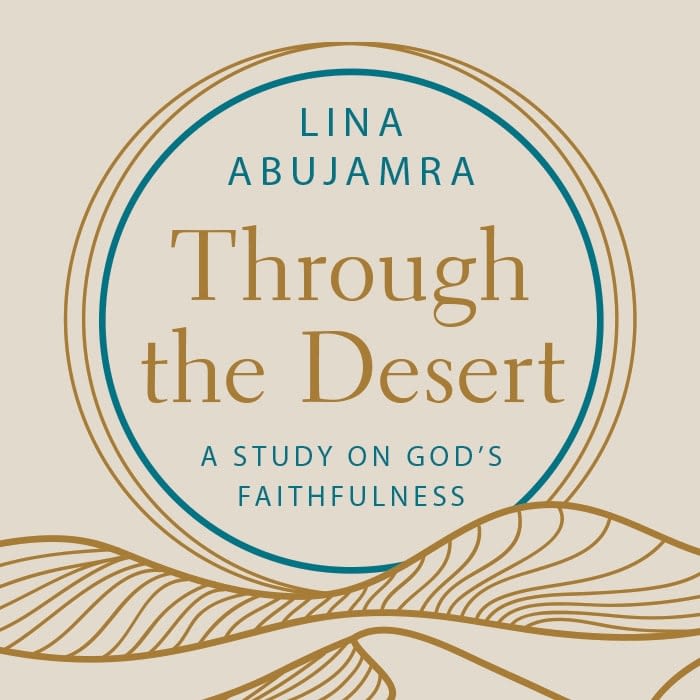Often the biggest test of our faith is how well we can wait on the Lord. Honestly, I would rather go through a difficult season where I can clearly see God refining me than go through a season of waiting. I like to know exactly where I’m headed next, and, like Sarah in the Bible, I’m not above trying to make my own path when I feel like direction from the Lord is lacking. My need for control and action often outweighs my trust in God’s plan.
The story of Hagar in the Bible intimately involves Sarah, and we see two women with very different responses when God calls them to wait. Sarah is a bit like me—struggling to trust God’s plan and looking for a way to control the outcome—while Hagar believes God’s promises and waits for Him to act.
Who were Abraham and Sarah in the Bible?
Before we talk about Hagar, let me introduce you to Abraham and Sarah. (They were first named Abram and Sarai, but for the sake of storytelling, we’ll stick with the names the Lord gave them.)
Abraham was living in his father’s household (as was customary at the time) in Ur of the Chaldeans when he was chosen by God to start a new nation—Israel. God’s promise to Abraham is threefold: “If you leave your father’s house and follow Me, I will give you land, numerous descendants, and all of the nations will be blessed through your family” (Gen. 12:1–3; 13:14–17; 15:5; 17:1–8).
Looking back over thousands of years of history, we now know that the blessing God promised for all nations was His son Jesus, who was a direct descendent of Abraham. This is the beginning of God’s plan of salvation for humanity!
There was only one problem: Abraham and Sarah couldn’t have children. Abraham was seventy-five when he left his father’s house, and Sarah was sixty-four—well past the childbearing years. After waiting for over a decade for God’s promise to be fulfilled, Sarah had an idea to help God’s plan along and that plan involved a slave girl named Hagar.
Who was Hagar in the Bible?
Genesis doesn’t provide much about Hagar’s background, except that she was from Egypt. Abraham and Sarah traveled to Egypt to avoid a famine shortly after leaving Ur, which was likely when Hagar joined their household.
The Bible tells us that the Pharoah was fond of Sarah “[a]nd for her sake he dealt well with Abram; and he had sheep, oxen, male donkeys, male servants, female servants, female donkeys, and camels” (Genesis 12:16).
As an Egyptian, Hagar likely didn’t know anything about the God of Abraham and almost certainly didn’t worship Him, which makes her later faith even more remarkable.
Sarah Devises A Plan
Since Sarah was apparently unable to have children, she decides that Abraham should marry Hagar and produce an heir through her. What could possibly go wrong?
Hagar conceived a child, and Sarah quickly realized this was not what she wanted at all! While pregnant, Hagar began to look down on her mistress for not being able to produce an heir. In turn, Sarah mistreated Hagar out of revenge and jealousy, and the situation quickly became untenable. Imagine how differently Sarah and Hagar’s story could have gone if Sarah had trusted God’s plan and timing!
Hagar likely would have continued on as a servant and seen God miraculously fulfill His promise to Sarah and Abraham. She could have rejoiced with them and understood God’s character better through her interactions with His people. Sarah’s sinful choices complicated not only her own story but Hagar’s as well.
Fortunately, God is not surprised by Sarah’s (or our) mistakes, and Hagar’s story is a clear example of God working out even the hardest situations for our ultimate good.
God Meets Hagar in the Wilderness
Pregnant Hagar fled from Sarah’s abuse and found herself in the wilderness near a spring of water. She stopped to rest and encountered the angel of the Lord for the first time. He spoke to her, saying “Hagar, servant of Sarai, where have you come from and where are you going?” (Genesis 16:8). This is the first time Hagar has been addressed directly in this story. Abraham and Sarah talked about her and made decisions for her, but they didn’t talk to her. The angel, however, made space for Hagar to tell her story.
Hagar answered, “I am fleeing from my mistress Sarai” (v. 8). Hagar was not concerned about her destination. She just wanted out, which makes the angel’s response even more surprising. He told her to return to her mistress and submit to her, but also left her with a promise: “I will surely multiply your offspring so they cannot be numbered for multitude” (v. 10).
Sound familiar? This is very similar to the promise the Lord gave to Abraham!
Even though God’s initial promise is for Abraham and Sarah (and God will still fulfill that promise through the birth of Isaac), God sees Hagar’s plight and gives her a promise of her own—your son will also become a mighty nation. Hagar praised God saying, “You are a God of seeing. . . . Truly here I have seen him who looks after me” (v. 13). Hagar believed God’s promise and obediently returned to Sarah, eventually giving birth to a son named Ishmael.
God Gives Abraham Another Heir
The next time we see Hagar is thirteen years later. She remained obedient and stayed in the house of Abraham despite her strained relationship with Sarah. At ninety years old, Sarah gave birth to a son named Isaac. Sarah now has a problem, however. As Abraham’s firstborn son, Ishmael is entitled to a share of the inheritance, so Sarah plans to get rid of Hagar and Ishmael once and for all.
She approaches Abraham at a celebration he’s hosting for Isaac and demands that he cast out Hagar and Ishmael. God speaks to Abraham and instructs him to do as Sarah asks since His chosen people will come through Isaac’s line. Hagar and Ishmael set off into the wilderness again with a loaf of bread and one skin of water to share.
When the water runs out, Hagar is convinced they will die, so she places Ishmael under a bush and cries out to God. The angel of the Lord appears to Hagar and repeats His earlier promise, “What troubles you, Hagar? Fear not, for God has heard the voice of the boy. . . . I will make him into a great nation” (Gen. 21:17–18). After speaking to the angel, Hagar sees a well and realizes they are saved.
Ishmael grows into a strong man in the wilderness and has twelve sons who later become a mighty nation—all because God heard the voice of a slave girl crying out for help.
God Wants Us to Trust His Promise and His Timing
Abraham and Sarah’s choice to use Hagar to produce an heir is clearly a sinful one. In Galatians 4:22–23, we see the only mention of Hagar in the New Testament: “For it is written that Abraham had two sons, one by a slave woman and one by a free woman. But the son of the slave was born according to the flesh, while the son of the free woman was born through promise.” Paul, the writer, uses the story of Hagar and Sarah as an allegory for the law versus faith.
This is not an indictment of Hagar, but a comment on Abraham and Sarah’s disobedience. In her sinful human nature, Sarah couldn’t see how God would fulfill His promise, so she proposed her own solution, hurting Hagar and herself in the process.
Thankfully, our God has a heart for the lowly and oppressed. He blessed Hagar despite her humble station and made her the mother of a whole nation! However, Sarah and Abraham’s choice had repercussions far beyond their own lives; we see the Israelites and Ishmaelites in conflict throughout the Old Testament.
Sarah struggled to trust the promises of God and wait on the good plan He had for her, far beyond anything she could imagine. If we’re honest, many of us have experienced those same doubts, so let’s take this story as both a word of caution and an encouragement.
God is always faithful to fulfill His promises, so we can let go of our worry and striving and simply let Him work on our behalf. May we have the heart of Hagar to believe God’s promises and wait for His deliverance.

Do you find that you’re more like Hagar or Sarah when the Lord asks you to pause and trust Him? How can you remind yourself to be more patient while you expectantly wait on His great plans to come to fruition?
Ready to Be Inspired by Even More Great Women of the Bible?
After you’ve had a chance to prayerfully reflect on the story of Hagar in the Bible, be sure to check out these related articles for even more encouraging stories and lessons from the famous women of the Bible!
- Lessons from Sarah in the Bible: Trusting God Through the Wait
- Five Lessons We Learn from Martha (And the Tender Rebuke She Received)
- What Miriam’s Successes and Failures Can Teach Us
Visit this link to see a complete list of all the Inspiring Women of the Bible we’ve covered so far on the Esther Press website. Alternately, be sure to check out these great recommendations for Bible Studies about Women in the Bible.

Purpose Doesn’t Pause
Hope Reagan Harris offers encouragement and faith-based ideas for finding and embracing God’s purpose in the life you have right now

Now Over Next
Hope Reagan Harris empowers women to stop striving for an elusive “next,” overcome FOMO (Fear of Missing Out), and find fulfillment in the present.




